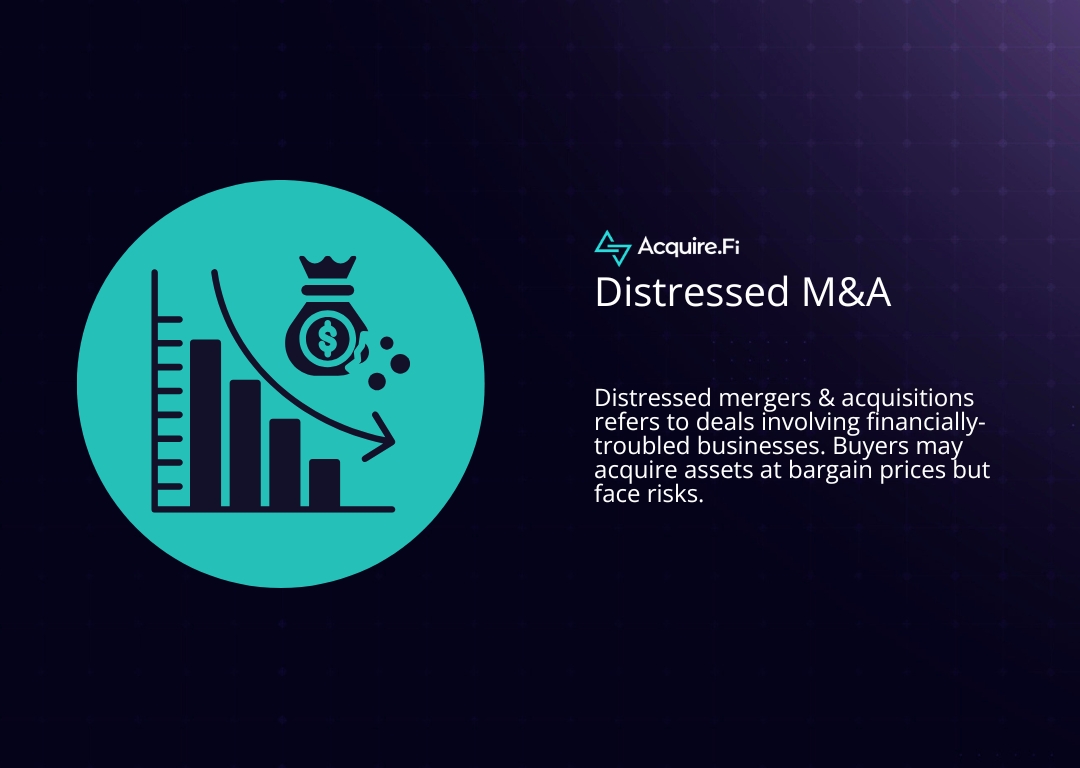Comparing Private Equity, Venture Capital, Hedge Funds
Investing in the stock market is not the only way to make money. In fact, many individuals and institutions look to private equity, venture capital, and hedge funds as alternative investments to diversify their portfolios and achieve higher returns. But what are these investment vehicles, and how do they differ from each other? In this article, we will compare private equity, venture capital, and hedge funds to help investors understand their key similarities and differences.
Understanding the Basics
What is Private Equity?
Private equity is a type of investment where investors buy shares in a privately held company. Private equity firms typically purchase a controlling stake in the company, meaning they have a significant say in the company's decision-making process. Private equity investments are typically made in mature companies that have a proven track record of steady revenue and cash flow growth.
Private equity firms are known for their active involvement in the companies they invest in. They often bring in their own management teams and implement changes to improve the company's operations and profitability. Private equity investments can be a way for companies to access capital without going through the public markets, which can be costly and time-consuming.
What is Venture Capital?
Venture capital is a type of investment where investors buy shares in a new or emerging company with high growth potential. Venture capital firms provide startup companies with money and guidance to help them grow and become profitable. Venture capital investments are typically made in companies that are not yet profitable but have the potential to become highly profitable in the future.
Venture capital firms are known for their risk-taking and long-term approach to investing. They often invest in companies that are developing new technologies or disrupting traditional industries. Venture capital investments can be a way for investors to get in on the ground floor of a potentially successful company, but they also come with a high level of risk.
What is a Hedge Fund?
A hedge fund is a type of investment where investors pool their money together and invest in various financial instruments, such as stocks, bonds, and derivatives. Hedge funds are managed by professional investment managers who use different strategies to generate returns for their clients. Hedge funds are typically aimed at high net worth investors and institutions, as they require a high minimum investment amount and are subject to less regulatory oversight than other investment vehicles.
Hedge funds are known for their flexibility and ability to generate returns in both up and down markets. They often use leverage and derivatives to amplify their returns, but this also increases their risk. Hedge funds can be a way for investors to diversify their portfolios and potentially earn higher returns, but they also come with a higher level of risk and volatility.
Key Differences and Similarities
Investment Strategies
The primary difference between private equity, venture capital, and hedge funds is their investment strategies. Private equity firms invest in mature companies with stable cash flows, while venture capital firms invest in new or emerging companies with high growth potential. Hedge funds invest in various financial instruments and use different strategies to generate returns for their clients.
Private equity firms typically invest in companies that have already established themselves in the market and have a proven track record of profitability. They often buy companies that are undervalued or distressed and work to improve their operations and financial performance. In contrast, venture capital firms invest in companies that are just starting out and have a high potential for growth. These companies may not yet have a proven business model or revenue stream, but they have a unique idea or technology that has the potential to disrupt the market.
Hedge funds, on the other hand, use a variety of investment strategies to generate returns for their clients. They may invest in stocks, bonds, commodities, currencies, or other financial instruments. Some hedge funds use long-term strategies, while others use short-term strategies such as day trading. Hedge funds can also use leverage to increase their returns, which can make them riskier than private equity or venture capital investments.
Risk Profiles
Private equity investments are typically less risky than venture capital investments, as private equity firms invest in mature companies with a proven track record of profitability. These companies often have stable cash flows and a strong market position, which makes them less likely to fail. However, private equity investments can still be risky if the firm overpays for the company or if the company's financial performance deteriorates after the investment.
Venture capital investments are riskier, as they are made in new or emerging companies that may not yet be profitable. These companies often have untested business models and are competing in markets that are still developing. However, the potential rewards can be much higher if the company is successful. Venture capital firms often invest in a portfolio of companies to spread their risk, knowing that some companies will fail but hoping that others will be successful enough to generate high returns.
Hedge fund investments can be risky depending on the investment strategy used by the fund manager. Some hedge funds use high-risk strategies such as short selling or derivatives trading, which can lead to large losses if the market moves against them. However, other hedge funds use more conservative strategies such as long-term investing in blue-chip stocks or bonds, which can be less risky than private equity or venture capital investments.
Time Horizons
Private equity investments typically have a longer time horizon than venture capital or hedge fund investments. Private equity firms aim to hold their investments for several years, allowing them to make operational changes and improve the company's financial performance. The goal is to create value in the company and then sell it for a higher price than they paid for it. This process can take several years, and private equity firms are often involved in the day-to-day operations of the company to ensure that it is on track to meet its goals.
Venture capital investments are generally held for a shorter period, typically between three and seven years. This is because the companies that venture capital firms invest in are usually still in the early stages of development and need time to grow and establish themselves in the market. Once the company has reached a certain level of success, the venture capital firm will usually sell its stake in the company to realize its gains.
Hedge funds may have a shorter or longer time horizon, depending on the investment strategy used by the fund manager. Some hedge funds use short-term strategies that allow them to take advantage of market trends or news events, while others use long-term strategies that involve holding positions for several years. Hedge funds can also be more flexible than private equity or venture capital firms, as they can buy and sell investments more quickly in response to changing market conditions.
Types of Companies Invested In
Private equity firms invest in mature companies with steady cash flows and a proven track record of profitability. These companies are often in industries such as manufacturing, healthcare, or technology, and they have a strong market position and loyal customer base. Private equity firms may also invest in distressed companies that are in financial trouble, with the goal of turning them around and making them profitable again.
Venture capital firms invest in new or emerging companies with high growth potential. These companies are often in industries such as biotech, software, or renewable energy, and they have a unique idea or technology that has the potential to disrupt the market. Venture capital firms often invest in a portfolio of companies to spread their risk, knowing that some companies will fail but hoping that others will be successful enough to generate high returns.
Hedge funds can invest in a wide range of companies, from mature companies to new or emerging companies, depending on the investment strategy used by the fund manager. Some hedge funds specialize in investing in specific industries or geographic regions, while others invest in a diverse range of companies and financial instruments. Hedge funds can also use their flexibility to take advantage of market trends or news events, which can allow them to generate high returns for their clients.
Fund Structures and Management
Fundraising and Capital Commitments
Private equity firms typically raise capital from institutional investors, such as pension funds and endowments, and high net worth individuals. Venture capital firms also raise capital from institutional investors and high net worth individuals, but they may also receive funding from corporate investors and crowdfunding platforms. Hedge funds are typically aimed at high net worth individuals and institutions, and require a high minimum investment amount.
Management Fees and Incentives
Private equity and venture capital firms typically charge a management fee, which is a percentage of the total capital committed to the fund. They may also charge a performance fee, which is a percentage of the profits generated by the fund. Hedge funds typically charge a higher management fee and a performance fee, as they are often aimed at high net worth individuals and institutions.
Decision-Making Processes
Private equity firms typically have a more hands-on approach to managing their investments, as they aim to make operational changes and improve the company's financial performance. Venture capital firms also provide guidance to their portfolio companies, but they generally have less control over decision-making. Hedge fund managers have more discretion over their investment decisions, as they are not subject to the same regulatory requirements as other investment vehicles.
Performance Metrics and Returns
Measuring Success in Private Equity
Private equity firms measure success based on the financial performance of their portfolio companies. They aim to generate a high return on investment for their investors by making operational changes that improve the company's profitability and cash flow. Private equity firms may also use other metrics, such as return on equity and return on assets, to measure success.
Measuring Success in Venture Capital
Venture capital firms measure success based on the growth and profitability of their portfolio companies. They aim to invest in companies that have the potential to become highly profitable in the future. Venture capital firms may use metrics such as revenue growth and market share to measure success.
Measuring Success in Hedge Funds
Hedge funds measure success based on the returns generated for their investors. They aim to generate higher returns than the broader market by taking advantage of market inefficiencies and using different investment strategies. Hedge funds may use metrics such as alpha and beta to measure success.
Conclusion
Private equity, venture capital, and hedge funds are all alternative investments that offer investors the opportunity to diversify their portfolios and achieve higher returns. While they have some similarities, they differ in their investment strategies, risk profiles, time horizons, and investment structures. Investors should carefully consider the risks and potential rewards of each investment vehicle before making a decision.











.webp)